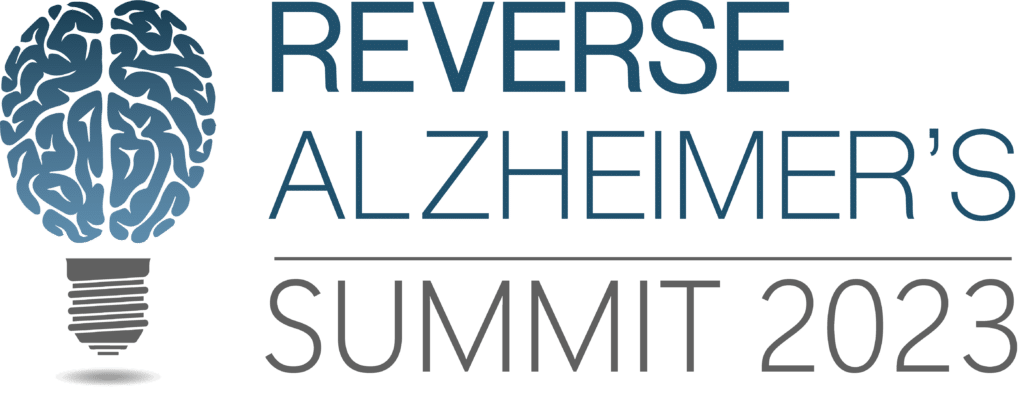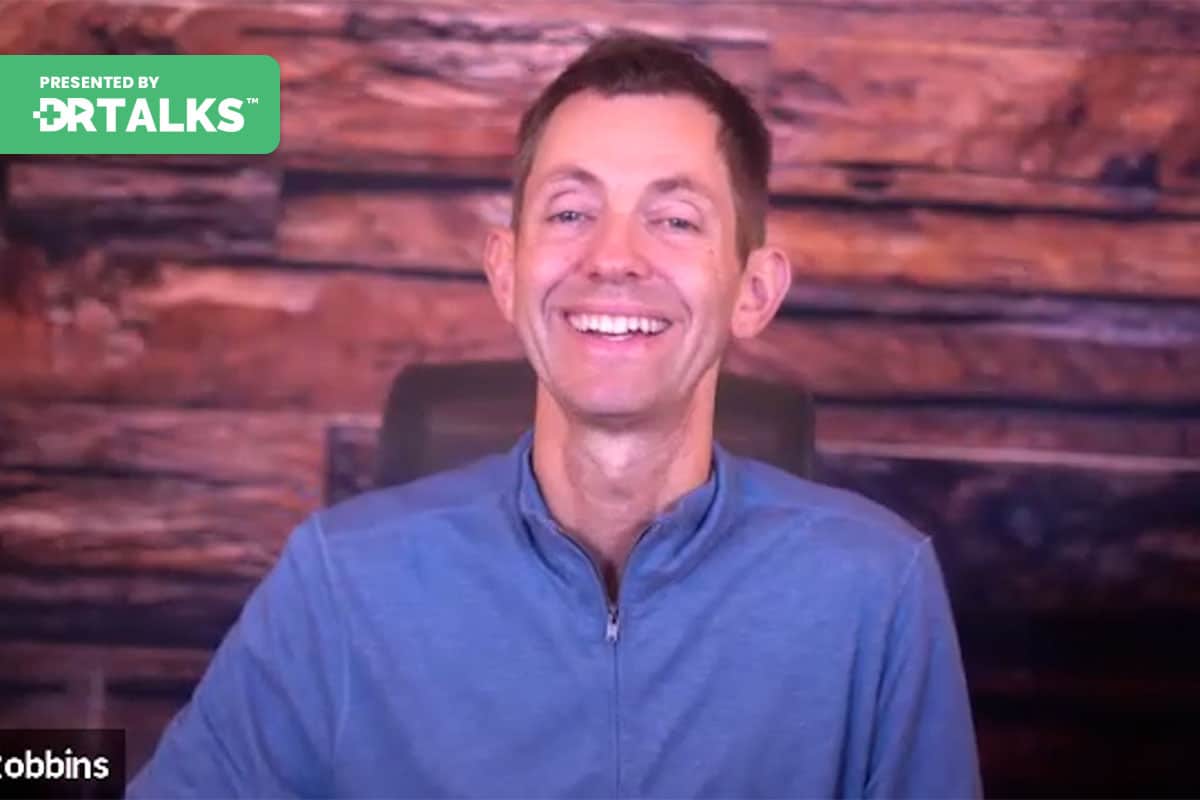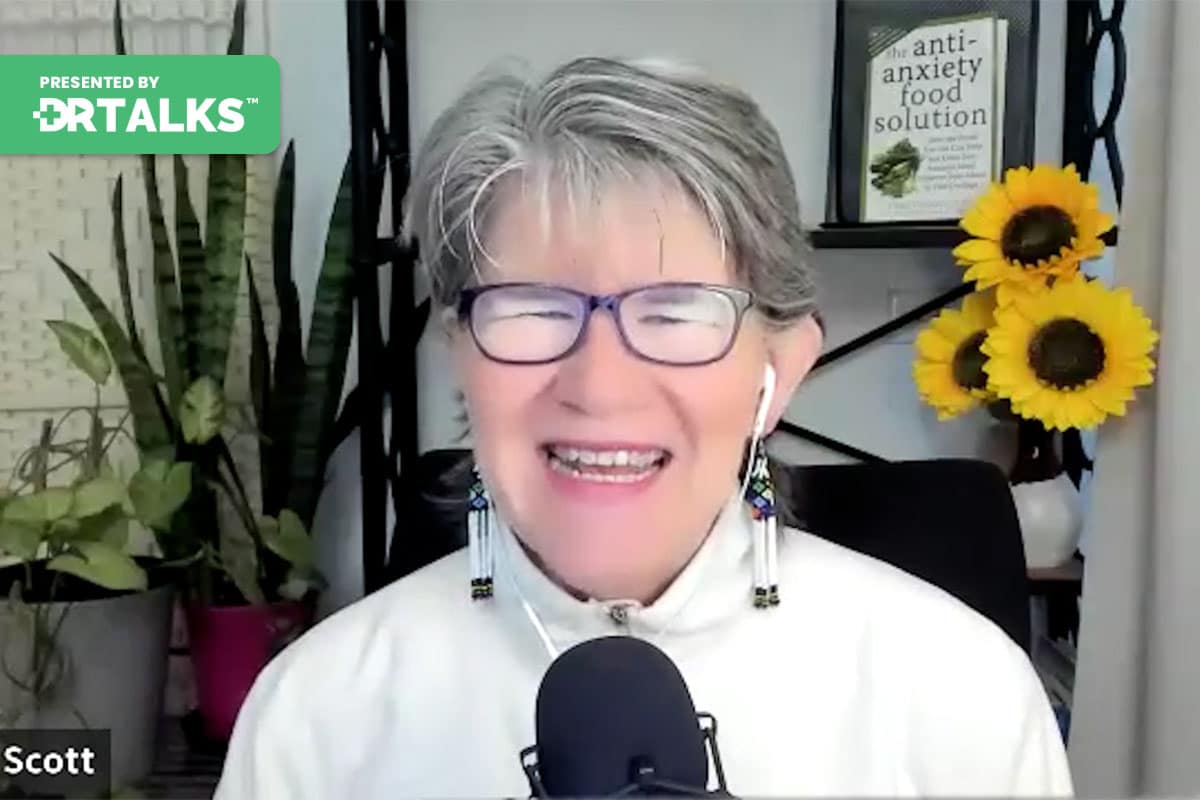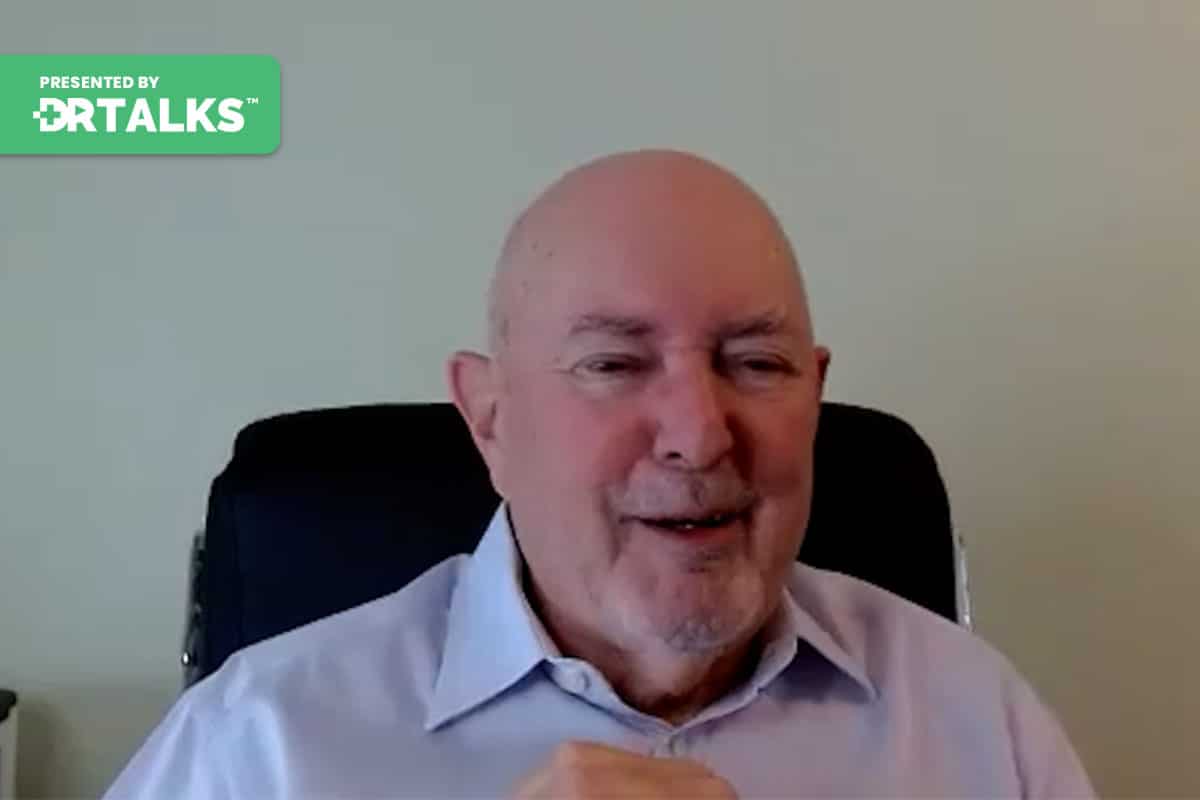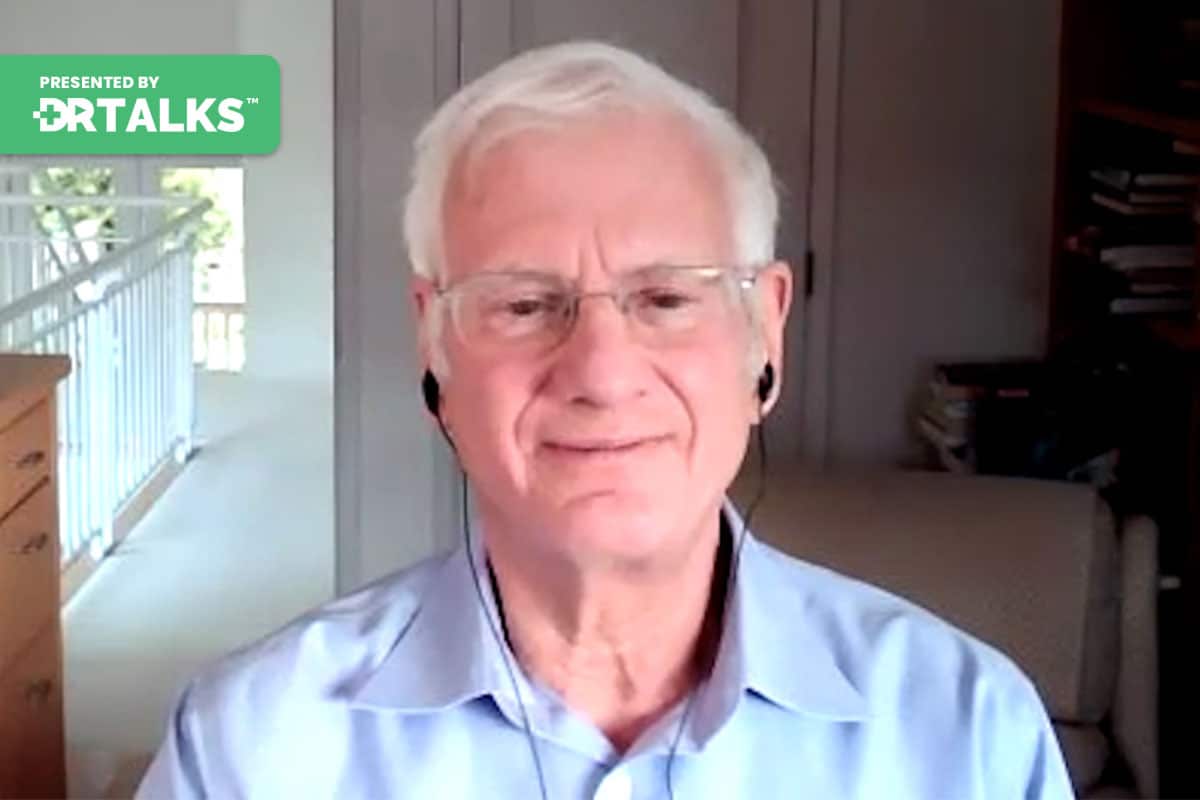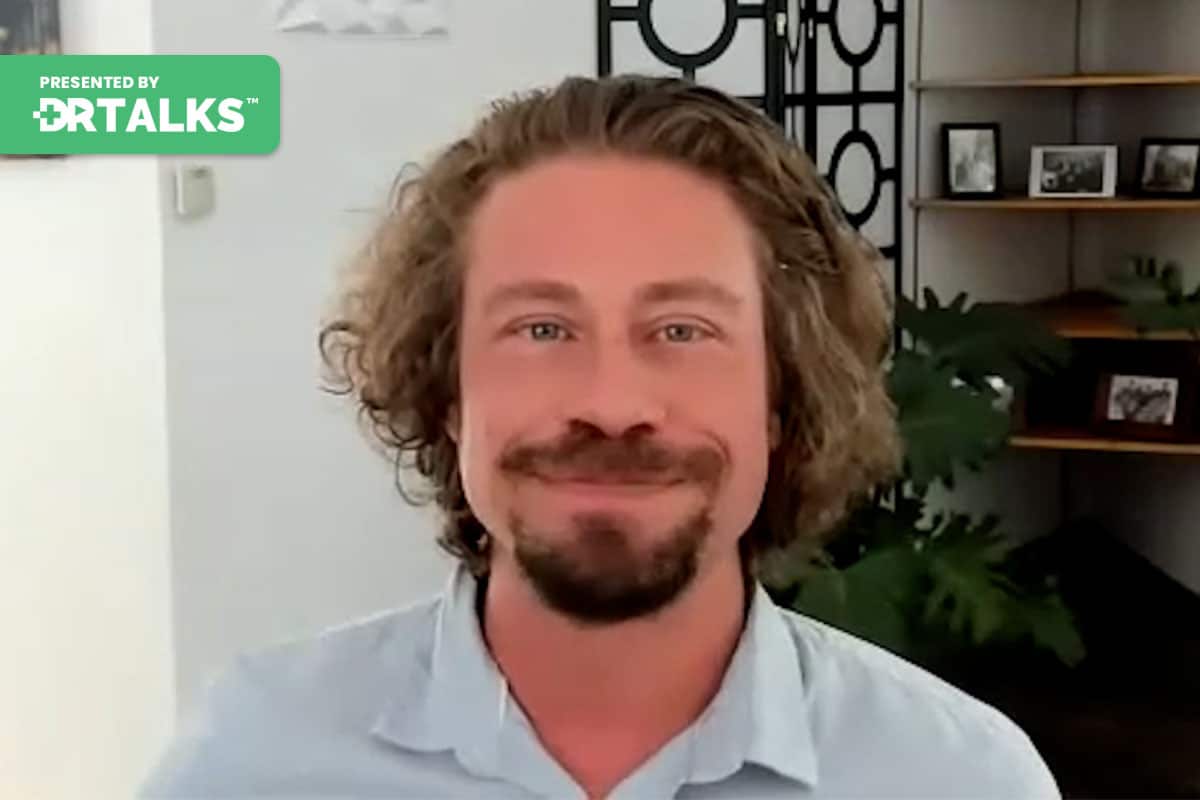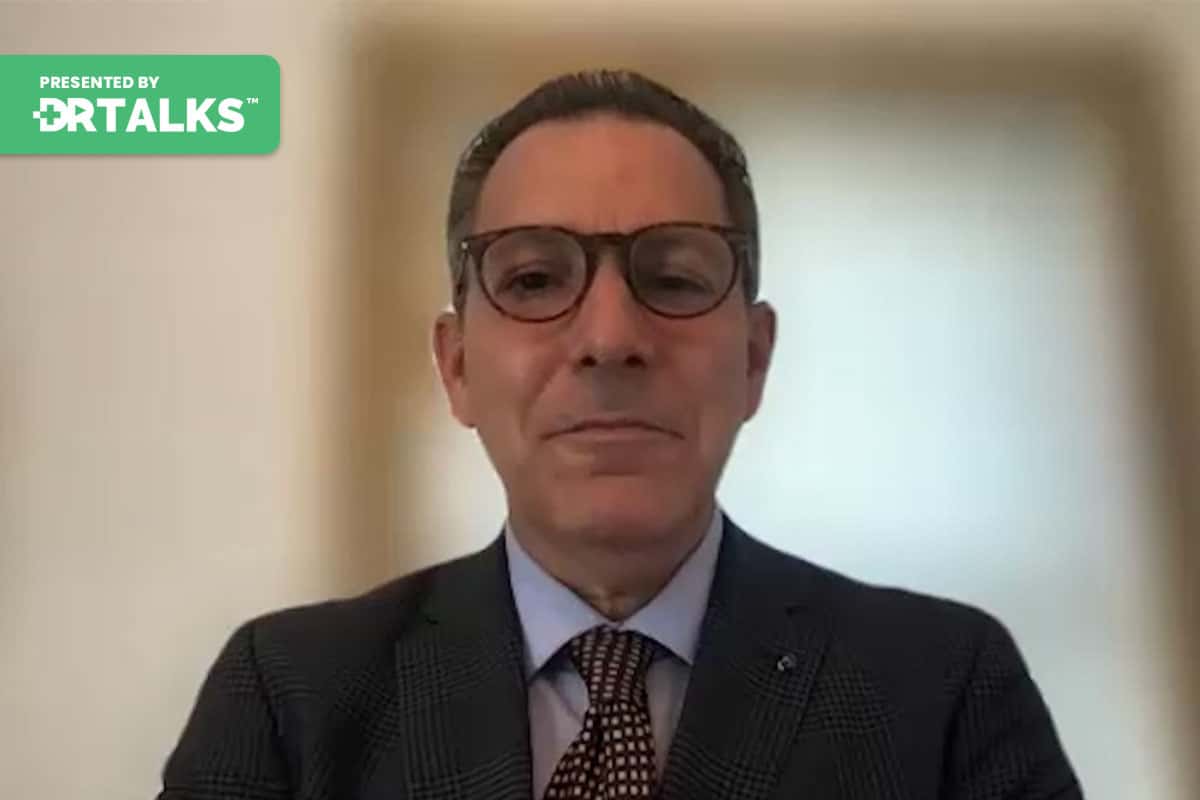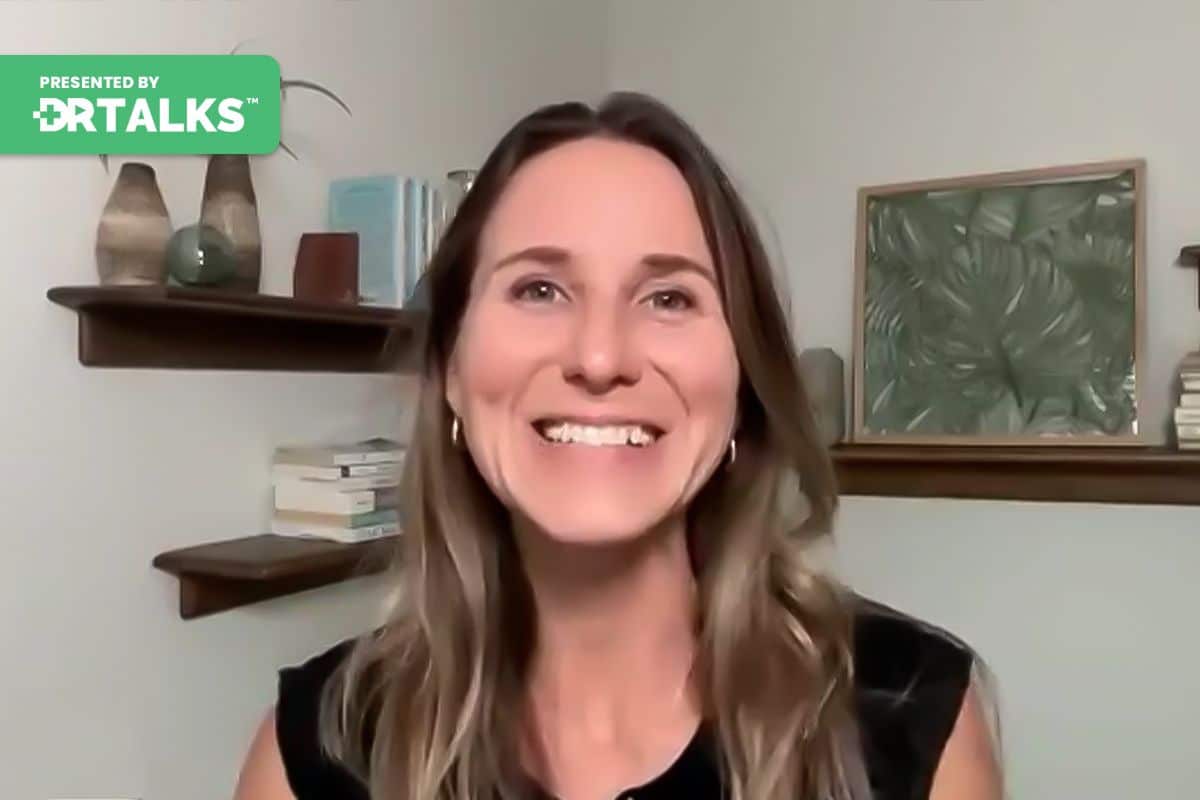Join the discussion below
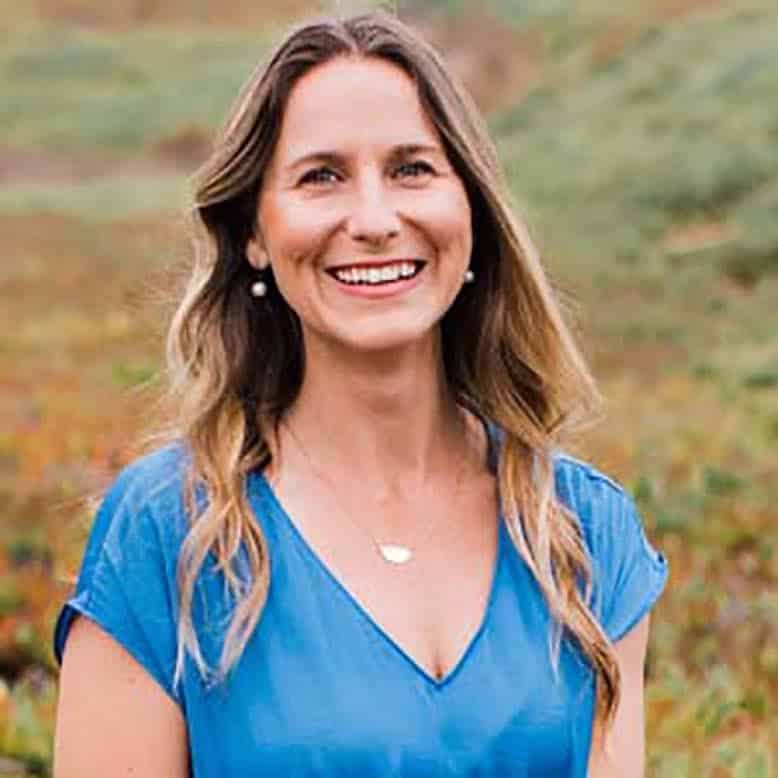
Dr. Heather Sandison is the founder of Solcere Health Clinic and Marama, the first residential care facility for the elderly of its kind. At Solcere, Dr. Sandison and her team of doctors and health coaches focus primarily on supporting patients looking to optimize cognitive function, prevent mental decline, and reverse... Read More
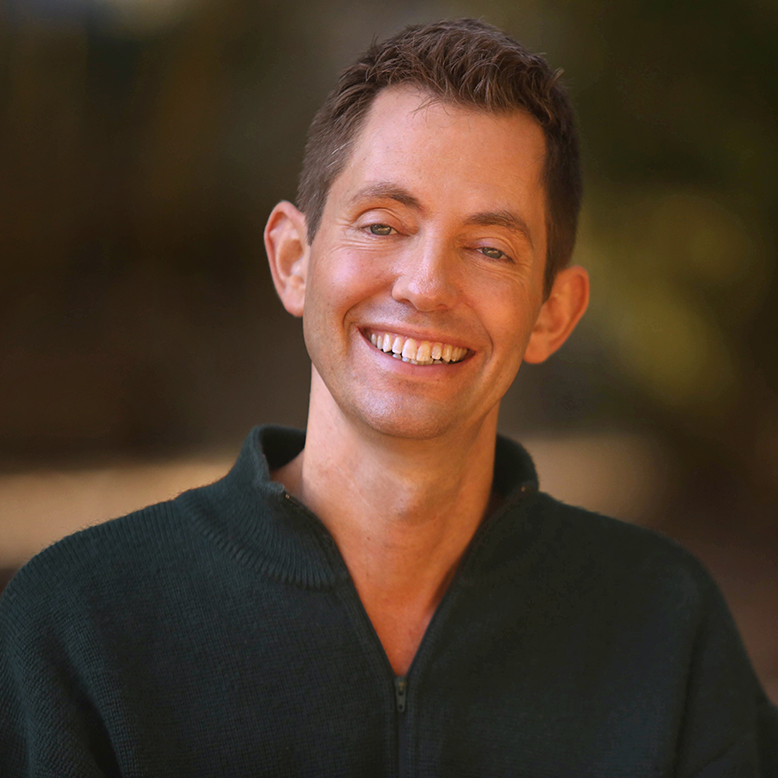
Ocean Robbins is co-founder & CEO of the 600,000 member Food Revolution Network. He is author of the bestseller, 31-Day Food Revolution: Heal Your Body, Feel Great, and Transform Your World. Ocean founded Youth for Environmental Sanity (YES!) at age 16, and directed it for the next 20 years. He... Read More
Ocean Robbins discusses the impact of food and our environment on our brain health.
- Understand how toxins in our environment like microplastics and pesticides affect our physiology
- Learn how you can eliminate toxins in your environment to improve your health
- Discover what diet choices you can make to reduce your risk of developing dementia
- Explore how to utilize a food revolution to optimize your life
Heather Sandison, ND
Welcome back to this episode of the Reverse Alzheimer’s Summit. I’m thrilled to have Ocean Robbins here today with us. He is the co-founder and CEO of the 700,000 member Food Revolution Network. He’s also the author of the bestseller 31 Day Food Revolution Kill Your Body, Feel Great and Transforming Your World. Ocean founded the Youth and youth for environmental sanity. Yes, at age 16. So impressive and directed it for the next 20 years. He’s spoken in person to more than 200,000 people, organized online seminars and events, reaching more than a million people, and facilitated leadership development events for leaders from 65 countries. Welcome to the show Ocean. Thanks for coming in.
Ocean Robbins
So great to be with you. Thanks for having me on.
Heather Sandison, ND
So food and environment are two of the things that you’ve been working on for decades. How are those connected to brain health?
Ocean Robbins
Well, food is incredibly connected to brain health and so is our environment. Let’s take those one at a time. So your brain is actually essentially a vascular organ. It consumes up to a third of the oxygen supply in your entire body. So when your heart is pumping blood through your body, the most important place that blood is going is sending oxygen to your brain. And so the brain is constantly consuming oxygen and needs a lot of blood flow. There’s so many circuits, reams of blood going to your brain. And so, you know, we talk about heart disease and cardiovascular disease, and it’s pretty well recognized nowadays that cardiovascular disease is essentially a lifestyle induced illness.
You know, we have the Ornish program showing us that 80% of heart disease can be reversed with changes to diet and lifestyle. We have other research showing us that up to 90% can be prevented from ever happening in the first place with changes to diet and lifestyle. And what we’re now learning is that the brain follows the exact same course, that the same things that are good for your heart health are also good for your brain health. And it’s well recognized that strokes are directly linked to cardiovascular health. But now we’re learning this whole is Alzheimer’s. So is dementia. And so is foggy brain. In fact, when the blood is flowing in, the oxygen is flowing and the nutrients are getting where they need to go. Then your brain works better. And when things are clogged through excess deposits of fat or hardening of the arteries and the flow can’t go as well, then that’s going to affect your brain in the short term with things like brain fog and in the long term with the increased risk of things like Alzheimer’s and other forms of dementia. So that’s the really high level piece. And then we can get into the specific foods that are you know, it takes a while to see the data on Alzheimer’s.
But you can now see we’ve been researching for long enough that we can start to look at trends. And when we follow a population of people say 50,000, 100,000 people over the course of 50 years, we start to look at what do they eat, how do they live, and how do they how do they what are their rates of Alzheimer’s and dementia, as well as other conditions over the course of their years? And so, you know, I think the really heartening thing is that, you know, depending on who you ask, you could get anywhere from 50% to 90% of Alzheimer’s cases could be prevented with changes to diet and lifestyle. Now, environmental factors are functionally similar in that they also affect the whole body. And what’s bad for your heart? What’s bad for your kidneys and what’s bad for your liver is also going to be bad for your brain at the end of the day.
And we know we live in a toxic world, increasingly with pesticides and all sorts of chemicals around us, in our homes, in our air, in our water, in our environment, in our soil and in our bodies, microplastics, all sorts of endocrine disrupting compounds. And we it’s getting increasingly well-known that a lot of these are factors in precipitating cancer or causing cancer cells to be go unchecked in the body because the body doesn’t have the defense mechanisms in place. We all get cancers. The question is, do we have the ability to cut off the blood supply to them and to keep them in balance? And what happens is that when the body is out of whack because of environmental contaminants or lifestyle or diet factors that cause us to not be at our best, we cease to be able to respond effectively.
And so the same is true with brain health that toxins in our environment can cause us to not function well in our bodies, which ultimately impacts the flow of nutrients to the brain and the ability of it to do well. But also there are specific compounds that can build up in the brain that can cause serious disturbances. We see, even with kids, that things like ADHD is directly linked to sugar and processed foods, particularly chemical flavorings and preservatives. All the chemicals that are in a lot of that candies and junk foods and processed foods today are directly linked to increased risk of hyperactivity and behavioral problems, difficulty learning in school, etc. well spent. Spread that out over the course of a lifetime. And those same factors can contribute to things like Alzheimer’s and dementia and more sort of irreversible problems. And, you know, this is another piece that that that I want to really let folks know is that for all the things we can do to prevent Alzheimer’s and dementia, which are many, there is no known ability at this point, once full blown symptoms have emerged to do anything other than at best slow the progression. We don’t know any way to reverse it.
Heather Sandison, ND
Don’t I’m not there. We see it over and over and over again in my clinic. Okay. We have a clinical trial that we’ll be publishing. And so we yeah, we definitely see reversal of cognitive decline now. It is not a cure. I would never use that word. And there is no pharmaceutical intervention that reverses cognitive decline or Alzheimer’s. However, there are lifestyle interventions and there are many, many things that we can do to enhance cognitive function even after it’s pretty severely declined. And I say that with so much love for the patients who have shown me what is possible, because there are people I had no hope for, who I watched reverse their Alzheimer’s, and now they might not be going back to work. But their experience in the world is very, very different when they can tell someone that they’re hungry for their cold or that they need to move or that they need to go to the bathroom after having been nonverbal, like so, so I will just say that that it is possible.
Ocean Robbins
That is fantastic. And I’m sure throughout the course of this summit, people are hearing lots and lots of those stories. I just want to just distinguish between cognitive decline and full blown Alzheimer’s and say that we don’t have knowledge of people who were properly diagnosed with Alzheimer’s who later reversed the diagnosis in any more than a few outlier cases. But I think that we absolutely have a lot of knowledge of people who have improved in their cognitive function, including at the place where they were experiencing symptoms of cognitive decline. And the fact that some of those people have been diagnosed with Alzheimer’s per say and are getting benefits is wonderful. And so, so happy to hear that. And of course, you know, that’s fabulous. And I think my main point, though, is that you don’t want to wait for a bad diagnosis to start making changes, because for some people at that point, it is too late. And, you know, the same is true with heart disease.
We call it the silent killer because a lot of people just keel over and die of a heart attack out of seemingly nowhere. But the truth is, the ground for that was being laid for years, if not decades before. And the same is true with Alzheimer’s, like the actual groundwork for Alzheimer’s starts 20, 30 years before symptoms develop typically. And so the point is that wherever you are in the journey, now is the time to take action. You know, they say the best time to plan a fruit tree is 20 years ago, but the next best time is today. So whatever you can do, you’re in the right place to learn how to take action for your health. And if you’re already having symptoms. Absolutely. If you can understand what we’re talking about right now, then you get it and you can improve and you can build on your capacity and make it better. And so let’s just remember, this is urgent and it’s important and the results are profound.
Heather Sandison, ND
You mentioned that 50 to 90% of dementia can be prevented and Alzheimer’s can be prevented. And there’s a Lancet article as a very conventional medicine coming out of the U.K. There was a 2020 commission report on Alzheimer’s and dementia, and they said that 40% of worldwide dementias can be prevented. So this is a big number of people who are suffering unnecessarily. And so from what you’ve words, what do we do? What do we eat? What kind of environment do we create? How do we prevent and potentially reverse cognitive decline?
Ocean Robbins
So the major pillars are, you know, you want to nourish your body with awesome healthy foods, which also includes reducing your consumption of saturated fat. In particular, we talk about cardiovascular health and the link, so it seems that saturated fat tends to have a clogging effect on blood flow in the body. There’s controversy about that. I’m fully aware. But the purpose of data seems to lead in that direction. And it’s at least as true for brain health as it is for heart health. So reducing saturated fat consumption in general, omega threes are very important. So you do want to get your omega threes. Flax and chia seeds are great sources. You have to grind them up a little bit so they don’t go in one end and out the other. And you also want to get your DHEA in EPA. So either if you don’t consume fish, then you want to take an algae based supplement. That’s where the fish get it from originally, but EPA and also important.
And then you want to, you know, eat lots of brain boosting superfoods like cruciferous vegetables. In one study from the Chicago Health and Aging Project, researchers found that when people eat green cruciferous vegetables regularly, they added 11 more years of healthy brain function like the likelihood of them getting Alzheimer’s if they were going to get it. It was 11 years later when they ate cruciferous vegetables regularly. Just that one simple thing. Berries are amazing. So regular consumption of blueberries has been linked to an extra two years of healthy brain function. Turmeric is amazing as an anti-inflammatory and it supports brain health therefore. And so people consuming turmeric regularly.
And this may be one of the reasons why in India, rates of Alzheimer’s are a fraction of what they are in the United States, even after adjusting for life expectancy. And it’s partly maybe because the population is about half vegetarian in India, but it’s also because they consume about a teaspoon a day of turmeric, typically with some black pepper, which increases bioavailability. So some form of turmeric or a curcumin supplement or what have you can definitely be beneficial. And then, you know, mushrooms are helpful, avoiding excess salt that can have a corrosive effect. Salt can, and also increased blood pressure, which is not necessarily good for brain health and, you know, there are a few compounds that are sort of controversial. Like some people say, you need AMC teas, medium chain, chain triglycerides.
There is some evidence that it may be beneficial to consume MCT oil, but there’s also not a lot of it and it’s a saturated fat. So there’s a little controversy about that and therefore about coconut, which goes with that. What’s not controversy is that coffee is associated with significant improvements in brain health. So interestingly, is green tea and you know, decaffeinated coffee seems to have benefit as well. So it’s not just the caffeine, but the caffeine seems to be helpful. And we have a lot of studies showing that coffee is beneficial for cardiovascular and brain health. Now, to be clear, it’s not for everybody. Some people get jittery. Some people feel like it’s bad for their nervous system. Some people can’t sleep. Not everyone processes caffeine well, and you can absolutely go for decaf or find other beverages. It’s not a must, but the research is pretty clear that for most people, coffee consumption is associated with better brain health long term. So that’s good news for the coffee lovers of the world. And, you know, this sounds crazy to me, but actually, the studies have shown that up to five cups a day are linked to better brain health and cardiovascular health and life expectancy outcomes. I would not do that, which I don’t think I don’t think I could sleep. But it is interesting that it seems like that from an overall health perspective, if your nervous system can handle it, sort of the sky’s the limit on that one. Now, there are downsides to coffee that are also need to be factored in.
It can be acidic. So for myself, when I drink coffee, I make a cold brew and I drink it half and half with unsweetened soy milk. And so I’m getting a little bit of fat to help balance the intensity of that experience. But you reduce the acidity by 50% or more when you do a cold brew instead of a hot fruit. And also we do some of the some of the potentially carcinogenic compounds that can be in there. So those are a few things that are beneficial from the nutrition side. And then you also want to unwind or practice stress reduction. The brain needs on and off, it needs up and down. It needs to be super use and it also needs to settle. So making sure that you sleep well is really important. Sleep is hugely important to brain health, so getting a good sleep at night means to not turning off the blue light and a lot of your activities, at least a couple of hours before bedtime, going to bed on a slightly empty stomach.
Don’t eat right up to bedtime. Turn off the food world by six or 7 p.m. perhaps if you can, and then you have a few hours before you go to bed. We sleep better when we’re not also digesting heavily and then obviously doing your best to practice stress reduction, maybe some meditation. And then in the morning get up and go. If you can get some sunlight on your body early in the day or get some exercise, early morning exercise is most beneficial for brain health. Exercise anytime is awesome though, and that’s the next piece is exercise. And then and then you also want to use your brain. You’ve got to optimize by putting it into action. So use it or lose it situation. So anything that’s challenging you to learn new things, especially cross hemispherical, you can literally build new neural connections at any age of life. So learning how to, you know, to musical instruments, singing and especially if there’s multiple parts, learning a new language. All of these things are incredibly good for brain health.
And the interesting thing is that the more neural connections you build, the more you have to lose, which means that you could have some atrophy at some point and you would still be awesomely functional because you’ve built so many neural connections. It’s like your insurance policy against future brain deterioration. So using up those neural connections is powerful. And literally two to neurons can have one connection between them or they get have 15,000. So you’ve practically exponential capacity for growth in terms of your neural connection, skill set. So things that challenge you, that get you thinking in new and creative ways, that get your right in your left brain interacting, these are all really powerful. So that’s kind of the prescription, if you will, for optimal brain health.
Heather Sandison, ND
I love it. And then environment. So what are some considerations if someone is concerned about cognitive function? What are things that you recommend people think about when it comes to their environment, whether it’s their home environment, work environment, outdoor environment?
Ocean Robbins
Yeah. Well, one piece is that you want to reduce bad stress. And so bad stress is the things that happen consistently and chronically that you have no control over and that sap your life force. So there’s also good stress. I want to be really clear and a lot of people think, oh, I’m just going to take it easy. If we just took it easy, we lay on the couch all day and be, you know, I have an IV hooked up for food and we would deteriorate and die, right. So and be miserable. So we actually needs drastic to cultivate creativity and ingenuity and innovation. So you want the right kinds of stress. And if you have bad stress that you can’t do anything about, you can turn it into good stress. By rewiring your relationship to it. For example, let’s suppose you’ve got a really annoying boss who just keeps being mean and doesn’t see your greatness, you know, doesn’t respect you, and you can’t change that. I mean, you might want to change jobs or talk to their manager and say, Hey, I’m not feeling treated right.
I don’t think it’s bringing out the best in me. And, you know, there are steps you could take, right, to try to address it. But let’s suppose you can’t. Let’s suppose it’s totally out of your control and you need the job. And then you remember what your greater purpose is. You want to feed your family. You want to grow in your career path. You want to have the stability of income so you can do the things you love. And then you frame it in that context and you realize, Oh my gosh, this is a hard thing to be a part of, a great thing. You know, like if you’re putting one brick on top of another, you could be really stressed. But remember, if you’re building a cathedral, that’s what you’re doing, right? And so reframing it in the larger context of what your life is about can turn bad stress into good stress. So environmentally, that’s one of the first things that comes up is where are we having stressors on us and how do we create healthy stress and get rid of the bad stress and fear constantly thinking, Oh my gosh, I don’t like this, I hate this, I hate myself. My life sucks. Those are spots where those kinds of thoughts, any thought you think more than about ten times in a day that isn’t positive is a place to pay attention and ask, okay, how do I reframe this rewire this, or change the circumstances that I’m in so that this fits better with the life that I want, you know, because that saps energy and it’s demoralizing to your psyche and.
Heather Sandison, ND
Brain set mindset is so important. I right now I’m reading this book by Becca Levy that has a lot to do with this conversation. It’s called Breaking the Age Code. And what she proposes is that our mindset about aging and if we have these negative associations with aging, that actually decreases our lifespan by seven years and that we can completely negate, completely get rid of any risk associated with ability for positive status by having positive associations with aging. And so what you’re describing is like, okay, yes, positive and negative things and re associating, rewiring around stressful events. But even ageism in our society can be stressful. And if we can make, I think of channeling Betty White and Helen Mirren and like imagine that our life is only going to get better and better and better. That actually shifts stress our health.
Ocean Robbins
It does and totally does. Another thing with environment is to drink clean water and breathe clean air. So a water filter is a really good idea to not be drinking disposable plastic bottle all day long because that plastic can leach into your body. And it’s bad for the environment and it’s a waste of money. But getting a good water filter that you can trust and then refilling in stainless steel bottles and carrying those with you and drinking a lot of water that you can trust is really important. So we use the aqua true. If you go to foodrevolution.org/water, I believe you can find out more and they have different models and that’s a reverse osmosis type model that can fit on your kitchen countertop so it doesn’t take installation. And they also have an undersea version, but it’s the most economical way to get really healthy water that I’m aware of. Then there’s also air filters. And so we I’m a big fan of the air doctor because they are also, again, for a really high quality air filter.
They’re really affordable for the consumer. I think it’s foodrevolution.org/airdoctor you can find out about that. I like that there’s other options you can also open windows but a lot but you know the key thing to remember is that for most people, indoor air is more polluted than outdoor air. And you don’t you don’t want to be breathing air that is loaded with carcinogens and brain damaging chemicals. And a lot of our home appliances have plastics and outgassing materials. Our couches are carpets. Our walls are, you know, are all sorts of materials are loaded with carcinogens and and compounds that are bad for our health. And so when you have a good air filter, you can sort of clear that out so that what you’re breathing in is good for you. And it’s a really nice settling feeling to know that your family’s breathing good air when you’re in the home.
And so so air filter, water filter, getting rid of plastic dishware, plastics to food storage containers. You know, we replaced all of our plastic food storage containers with glass with have plastic snap on lids, and then we use some stainless steel as well for anything that might be hot or need to be transported because you can use these stainless steel with snap on lids that have silicone seals and those are good for like schlepping food around. I even go to a restaurant, I’ll have some reusable containers in the car. So if there’s leftovers, we can bring them home and things that are safe. These are all really helpful steps you can take that reduce your exposure to toxins. And then, of course, if you can live in an environment that’s safe, that’s great, but not everyone can afford to. So we just do the best we can, you know, with the resources that we have to live in a place that’s as safe and clean as possible so that we’re minimizing our toxic load. Your body’s resilience, it’s forgiving and it’s resourceful and it can do an amazing job. Detoxifying and cleaning up from the sins of the past. And so remember that and also remember that every step you take to help your body out will pay off manyfold in the future. You know, an ounce of prevention is worth a pound of cure rate.
Heather Sandison, ND
And you mentioned, you know, but what we have control over again this stress with this whole conversation, it can feel highly stressful and like we don’t have a lot of control. And what we want to do is not focus on like the freeway and things that we can’t change, but on the decisions that we make day to day, about what we eat, about whether or not we drink out of plastic water bottles, potentially, especially this comes up with women, but our personal care products, cleaning products, those kinds of things that we do have control over, where we can just make a slightly different decision and have a reduction in how much we’re exposed to that. It’s going to be meaningful, especially over the course of a lifetime. Yes. So you hosted a brain event recently and I am sure learned a ton. You know, you’ve been at this learning about health for decades and decades and have quite a community. And you just had this you know, it’s always changing as well. We’re always learning. And so I’m wondering if there was anything that surprised you or stood out that you want to share with our audience?
Ocean Robbins
Yeah, well, I got to work with Dr. Dean, and she shares I, who are two of the top neurologists on the planet. They started the Alzheimer’s prevention program at Loma Linda University. They wrote the book, The Alzheimer’s Solution. And they are researchers through and through. And they’ve been studying the data and then conducting their own research. And here’s a fascinating data point. Let’s look at Loma Linda, California, for a moment. It’s the only blue zone in the United States. So people in Loma Linda live about eight years longer than the average American. And it’s the only place like that in the country. And the reason is that the population of Loma Linda, California, is predominantly Seventh Day Adventist people and three quarters or so I think in as the population in that city and the Seventh Day Adventist community as a whole really values health and healthy lifestyle a lot.
And about half of them are vegetarians and another significant cross-section are vegans. And then some are also PESCO vegans. And what’s interesting is this is a community that all shares a common faith context. So they all and they all get a similar amount of exercise, which is quite a bit by most American standards. They all have a fairly homogenous class context. So Loma Linda is fairly middle class and you don’t have the extreme swings of poverty and wealth that you get in other places because people sort of take care of each other and they’re a very connected community within this within the Adventist world. And so what’s fascinating is that we can study this population of people and see how their the differences in their lifestyle play out. Among a common backdrop, the problem with most epidemiological studies is you could say, oh, my gosh, people who eat mushrooms are healthier. But you don’t ask, well, what else are the mushroom eaters doing differently? Maybe people who eat more mushrooms also do more wild foraging and spend more time in nature. Correlation is not causation, right? So epidemiological studies have that is an inherent weakness, which is why we tend to try to balance them. In fact, I mean, okay, after adjusting for all these factors, then what does the data show and adjusting means like suppose that some people exercise more than others. We quantify what we know about exercise to life expectancy or Alzheimer’s risk, and then we say, okay, well, they’re exercising more and that creates a 40% reduction in risk, therefore will balance that. So then we have to look at the other factors with that. But it gets a little messy, right? Because there are so many different variables. But with the Adventists who have been studied for the last 50 years or so, if populations of about, I think 60,000 people, it’s been a major study that keeps going on and looking further, we get a lot of those variables are removed. And so we can really look at the different dietary patterns, which is a fascinating subgroup. So what I’ll say first of all, about the Adventist Health Study is that it’s showing us that among the Adventist community as a whole, they’re living about eight years longer than the average American.
The people who live the longest within that community are the PESCO vegans, and the vegans and vegetarians are next. And then the omnivores are at the bottom of that sort of hierarchy of life expectancy. And we can also see that the PESCO vegans and the vegans have lower rates of heart disease and Alzheimer’s and cancer and type two diabetes and all the major chronic illnesses that are besetting us today. And not only do they have longer life expectancy, but they have longer health expectancy. And this is true in the Adventist population in general, because a lot of people I know are like, I wouldn’t want to live eight more years in a wheelchair blind and deaf, you know, but that’s not what we’re talking about. We’re talking about people who actually are robust and healthy and vibrant. And then basically they have a steep drop off right at the end of the day, rather than sort of dying slowly for ten or 15 or 20 years, which is what we see all around us in the modern world.
And so the other interesting thing, though, is that the shares eyes have been practicing in Loma Linda and they’ve been seeing people from the Loma Linda Adventist community and the wider region because it’s a premiere center for Alzheimer’s. So they have worked with they have diagnosed 3000 Alzheimer’s cases over the course of the last 20 years. And of those 3000, they’re working in a community that’s 50% vegetarian, and they’re also working with a larger population. So we’re not everybody is part of Loma Linda, but still they’re going to have a skewed population reference point at Loma Linda Alzheimer’s Center. That’s going to tend towards more vegetarian than the mainstream population. Of the 3000 people that they have diagnosed with Alzheimer’s, I believe the number of them that were plant based was like 1101. And so based on their research, that’s kind of stunning in a community that’s 50% vegetarian.
Right. And and so, you know, that just adds to the sort of anecdotal in a sense that the plural of anecdotal is data and their their conclusion based on all the research they’ve been doing and the work they’ve been doing is they say 90% of Alzheimer’s cases can be prevented with changes to diet and lifestyle, not 100%, but 90%. And the other 10% is actually environmental is part of it. And then, of course, there are some that’s genetic for sure, but it’s a very small percentage. And yes, some people have a predisposition towards Alzheimer’s. They have genes that make it more likely. But, you know, if genes, you know, load the gun lifestyle pulls the trigger and you don’t have to pull the trigger.
Heather Sandison, ND
So if you could wave a magic wand and create a society where the future of aging was really compelling for people, what would it look like?
Ocean Robbins
Well, I would say that we want a future where we grow into our wisdom years with pleasure and satisfaction. You know, our elders have done something, they’ve given something. And if they’ve lived with a meaningful in a meaningful way, they’ve also learned something. And our society needs the elders. It needs that wisdom. My goodness, we cannot afford to keep making the same mistakes. We’re running out of time as a species. You know, if we don’t learn from the past, we are destined to repeat it. Our elders are essential to our ability to learn from our history. So we as a society need our elders in tip top shape with all of the wisdom and all the creativity they need. And elders also need humility to never stop learning, to never stop discovering, you know, the moment you think you’ve got everything figured out, you know, pride goeth before the fall.
So we always need to be learning and growing, but we also need to be sharing what we have learned, not in a way that tells other people to do it just the way we did it. But that hopefully helps them learn from our mistakes as well as our discoveries. And then, you know, I want to see us re-envision our picture of aging because so often, you know, what you focus on is what you get. I remember when I was learning to ride a bike, I saw a pothole ahead of me and I was like, don’t hit the pothole. Don’t hit the pothole, don’t hit the pothole. And guess where my bike went as I’m staring at the pothole right into the pothole. Right? The next day I rode on the other side of the street and it took a while to realize I had to actually look away from the pothole if I wanted to go somewhere else.
So when you look at aging, you think, Oh, I may have more and more pain, more and more aches, more and more suffering, less and less mental clarity, less and less joy, less and less sexual vitality, less and less pleasure, less and less mobility. I’m going to be a basket case someday, if that’s what you think, then that’s what you’re looking at on your bike as you head towards your pothole. But are you willing to have another possibility where you say, Oh my goodness, my wisdom years are going to be my best years ever. I might have more satisfaction, more peace, more pleasure, more friendliness, more space and time to do the things I love because I’m less caught up in the busy body world. I’ll have more space to do things efficiently because I have learned so much about how to be optimally efficient. I’ll have better sense of priority. You know, younger people sort of do everything as we figure everything out. Older people learn to prioritize and focus, learn the value of focus. And so, you know, your wisdom years could be your best years ever. And one of the key things is use it or lose it, like stimulate your brain and use your body and think of food as medicine. You know, you want to eat to live, not live to eat. And of course, you should have pleasure in your food. Right. But let’s find healthy pleasure in healthy food. Let’s turn to love foods that love us back. And you know, I was talking to somebody yesterday who was talking about how she didn’t like vegetables. And I was thinking, you know, and she said, what do you what’s your advice? And I say, well, either learn to like vegetables or live close to a good hospital, you know, because that’s the truth of it. Like and I don’t you know, that can sound kind of glib, but the truth is that there’s so much pain we’re setting ourselves up for if we don’t make the right choices now. And if you’re growing up, you know, you brush your teeth in the morning or at night and you don’t say, Oh, do I want to brush my teeth? You just do it right because it’s the right thing to do. And hopefully you find as much pleasure as you can in it. You learn to have it be a self-care ritual and you find some toothpaste you like.
But at the end of the day, you’re not doing it because it’s fun. Let’s be honest about it. You’re doing it because you don’t want to have cavities that are a lot less fun. You want to keep your teeth, right? So thinking of food the same way, like let’s learn to bring as much pleasure as we can to it. But at first and foremost, food is about nourishing your life so you can have pleasure in everything you do so that your tastebuds aren’t the only pleasure you have left. And that’s what I want for all of us. And I want our aging to be a maturation and a ripening and a widening and a deepening so we can look back in our lives that satisfaction and look forward to whatever remains of our lives with pleasure and enthusiasm.
Heather Sandison, ND
We are so aligned in that vision and I love hearing you articulate it. I had a patient yesterday. I was talking to the first time I met him. He’s 70 years old and he was like, Man, I always say new in my twenties that the sex was just going to keep getting better and better as I got older. That is awesome.
Ocean Robbins
Yeah.
Heather Sandison, ND
And there is so much potential to reframe this and I think as a society we absolutely owe it to our future generations to incorporate the wisdom and experience of our elders for that intergenerational wisdom transfer to happen. And I don’t know if you know that I created Miramar, which is an experiential space, a residential care facility for the elderly, where we try to create we aim to create the most brain healing environment. And my goal is we make those types of places obsolete. I that society has gotten it wrong. And what we really need is to support prevention so that all of our elders can stay in that fabric of theirs and society in their communities at work if they want to. They can be contributing to that next generation, transferring that wisdom so that we can create solutions to, you know, the many, many problems that the world is facing these days. We need them. They are a squandered resource. So thank you so much for sharing that vision with me. There’s so much alignment and in your work and mine and it’s just really funny to be having these conversations and knowing that there is a shift happening and that we are catalyzing and hopefully there are many, many people who won’t need to suffer with this torturous disease. Often I want to make sure everyone knows how to find out more about you. You mentioned your website and some of the products and what else can they use to discover more about what you have to share?
Ocean Robbins
Yeah. So if you go to FoodRevolution.org, you can find lots and lots of articles. We’ve got I think over 1200 recipes posted and over a thousand articles on critical food and health topics are completely free. You can also get my book, The 31 Day Food Revolution. Your body feel great and Transform Your World available online or perhaps in bookstores. And you can also go to brain.FoodRevolution.org if you want to check out the free masterclass that I created with Dr. Dean and Aisha shares I again, that’s brain.FoodRevolution.org where we share a lot of the tips and a lot of their brilliant wisdom on Alzheimer’s prevention and peak brain performance. And really, you find us any time in your own heart you choose real food over processed junk. Every time you say yes to foods that help you thrive and that are part of the world you want to create, you know? And that’s the other piece I want to just briefly touch on, is that, you know, food, super personal, every bite literally becomes you.
It’s also somewhat political. It shapes the policies and practices around the globe. And we now know that cows impact our climate more than cars. We now know that 80% of the world’s agricultural land is being used, animal agriculture, to produce 18% of the world’s calories. If just theoretically, the entire world went vegan tomorrow, not that that’s going to happen, but they just play with me for a second. If everyone did, would free up an area of land equivalent to all of the United States, European Union, Australia and China combined in one fell swoop. That’s how much land would be freed up, which could instantly be used to go back to forest or regenerative purposes, or to grow abundant organic food for future generations. If just theoretically, we turned all of our lawns in the United States into gardens, we could triple our vegetable production in the United States just with that one move.
So by moving away from Meat Center Dyad and turning lawns into gardens and getting more community gardens going, there are so many ways that we can contribute to building a healthier food culture and a healthier food economy and a more sustainable planet for future generations. And by the way, most of our genetically engineered crops, for those who are concerned about that, most of our pesticides are actually being sprayed on land or being used to grow food for cattle and other livestock. So even if you’re worried about the impact of soy plantations on tropical rainforests, remember this most of that soy isn’t going to tofu, it’s going to livestock. So, in fact, if you want to have less impact on the earth, there’s few things you can that are more potent and eat lower on the food chain. And the benefit of that, of course, is that it also contributes when you do it right, you get more phytonutrients and more beneficial compounds that are good for fighting Alzheimer’s, peak brain performance, and so much else. The plant kingdom offers a such an abundance of vitamins and minerals, antioxidants and nutrients of all kinds that stimulate our brain and help us to function well and that are anti-inflammatory and that are beneficial for overall wellness. So eating lower on the food chain, eating more from the plant kingdom can be powerful steps you can take to benefit yourself and your planet.
Heather Sandison, ND
So empowering. Awesome. Thank you. So, so much for being here. It’s been an absolute pleasure. I learned a ton and I know our guest has a have as well. Thank you again.
Ocean Robbins
Absolutely. It’s my pleasure. Thank you so much. And to everyone watching. Thank you for being a part of this learning journey, this movement of people who are rediscovering what’s possible. You are part of the solution on this planet.
Downloads
